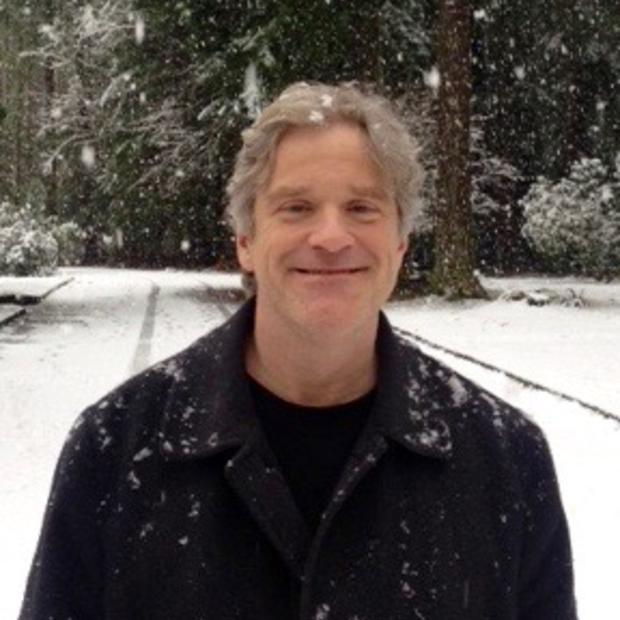If Cervantes recast Don Quixote in twenty-first century Washington, Edmonds could be La Mancha with retired Rep. Brian Baird modeling Quixote. As the Vancouver Columbian's Kathie Durbin writes, U.S. Rep. Jaime Herrera Beutler will co-sponsor Baird's original tilting-at-power (windmills are so outdated) bill to ban insider trading by members of Congress. Durbin quotes Herrera Beutler's statement. "Brian Baird deserves a lot of credit for highlighting this needed reform — both as a member of Congress, and recently as a regular citizen. There’s no place for insider trading in this country — not on Wall Street, and most certainly not in Congress. We’ve all seen the fallout when folks in privileged positions put their own profit above ethics. I hope we pass this bill to ensure Congress keeps its focus on serving the public good."
The renewed interest in the STOCK (Stop Trading on Congressional Knowledge) Act was prompted by Sunday's 60 Minutes expose, which highlighted otherwise-legal insider trading by members of Congress, based on privileged information. As Durbin writes, "As of Tuesday, the measure had 19 co-sponsors from both parties, not including Herrera Beutler. Of those, 11 signed on Monday after the '60 Minutes' piece aired." The rush to be on the winning side of the issue makes human-nature sense. As JFK said after the 1961 Bay of Pigs disaster, "There's an old saying that victory has 100 fathers and defeat is an orphan." Baird, it seems, is an orphan no more.
The feds are furtively scheming to legalize marijuana. That's one takeaway after Tuesday's series of coordinated raids on medical-pot dispensaries that, at least on the surface, appear absurdly excessive. As the Tacoma News Tribune's Stacia Glenn writes, "Federal and local authorities raided at least 14 medical marijuana dispensaries in Pierce, Thurston, and King counties Tuesday, targeting those they said were operating illegally. Eighteen people were arrested, including a man who operated a dispensary in Tacoma and was on supervised release for a felony conviction."
Some bad characters gravitate to the medical-pot world, and U.S. Attorney Jenny Durkan and the D.E.A. are enforcing the law. The subtext, however, is that, if you have a problem with the law, change it. Don't point fingers at the men and women just doing their jobs. Glenn writes, "Aaron Pelley, an attorney in Seattle who works with the Cannabis Defense Coalition, said Tuesday’s busts, which also shuttered dispensaries in Pierce and King counties, will force legitimate medical marijuana patients to turn to the black market."
In next year's campaign to legalize and regulate marijuana, the analogue will be the failure of Prohibition. Could the legalization battle affect other races and initiatives? Will there be an anti-dope incarnation of the Western Washington Woman's Christian Temperance Union? Political labels are always freighted with a values-related message. In brief, better to be pegged a "pro-liberty" candidate than a "pro-stoner" one.
Publicola's Erica Barnett examines the paper-or-plastic conundrum and lands on a provocative thesis: Get rid of both. "The difference in the environmental impacts of plastic and paper grocery bags is minimal. Reusing bags you already have is a far better solution than using new ones," Barnett writes. "A better solution than banning one or the other arbitrarily, then, would be to ban both, or to charge a nominal fee for bags whose cost is now built into the cost of groceries. Given that the latter failed, it might be time for the city council to take a bold step and go for the former."
Once again, absurd brainstorms illuminate broader questions: What are we trying to do here? As Barnett writes, "The question is: Is switching consumers to paper grocery bags really an improvement? The consensus, pretty much unequivocally, is no." Barnett goes on to point out that "only about 10 to 15 percent of paper bags are actually recycled. The rest are thrown into landfills, where their decomposition rate varies widely (and where they take up more space than plastic bags)." Too nannyish? Washington may be a sustainability leader, but it's also the state that banned cigarettes (!) from 1893 to 1911.
Everett as Buenos Aires? The notorious Nazi war criminal Adolf Eichmann was captured in Argentina in 1960. The purported Bosnian war criminal Edin Dzeko was captured in Everett in 2011. The comparison ends there (although all war crimes are revulsive). As the Everett Herald's Noah Haglund writes, "The 39-year-old Everett man appeared Tuesday in U.S. District Court in Seattle as part of the extradition process for alleged war crimes in his native country. The killings occurred during the civil war that tore apart the former Yugoslavia in the early 1990s. The Bosnia-Herzegovina government sought Dzeko's arrest earlier this year in connection with killings of Croat civilians and soldiers." Dzeko is not fighting extradition. Citing Dzeko's lawyer, Haglund writes, "Among the reasons were a lack of grounds to challenge the international extradition treaty, the status of war crimes as an extraditable offense, or the probable cause for Bosnian authorities to investigate."
Lastly, researchers in Alaska have unearthed a fascinating and mysterious artifact on the Seward Peninsula. As the AP's Jan Joling writes, "A research team is attempting to discover the origin of a cast bronze artifact excavated from an Inupiat Eskimo homesite believed to be about 1,000 years old." One theory is it could be East Asian (or what about Genghis Khan?).
Link Summary
Vancouver Columbian, "Herrera Beutler signs onto anti-insider trading bill"
Tacoma News Tribune, "18 people arrested in three-county medical pot raids"
Publicola, "Paper or plastic?"
Everett Herald, "Everett man, suspect in war crimes, to face trial in Bosnia"
Anchorage Daily News, "Bronze artifact found on Alaska's Seward Peninsula"


